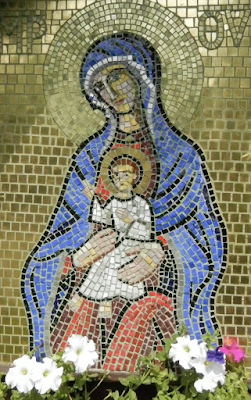God made a covenant with us. The word covenant means coming together. God wants to come together with us. In many of the stories in the Hebrew Bible, we see that God appears as a God who defends us against our enemies, protects us against dangers, and guides us to freedom. God is God-for-us. When Jesus comes a new dimension of the covenant is revealed. In Jesus, God is born, grows to maturity, lives, suffers, and dies as we do. God is God-with-us. Finally, when Jesus leaves, he promises the Holy Spirit. In the Holy Spirit, God reveals the full depth of the covenant. God wants to be as close to us as our breath. God wants to breathe in us, so that all we say, think and do is completely inspired by God. God is God-within-us. Thus God’s covenant reveals to us how much God loves us.
--Henri Nouwen
Image source: Taddeo Crivelli, The Trinity, tempera and gold on parchment, manuscript (1460-1470), https://cdn.britannica.com/78/197878-050-11717643/tempera-gold-Trinity-parchment-manuscript-Taddeo-Crivelli.jpg
























